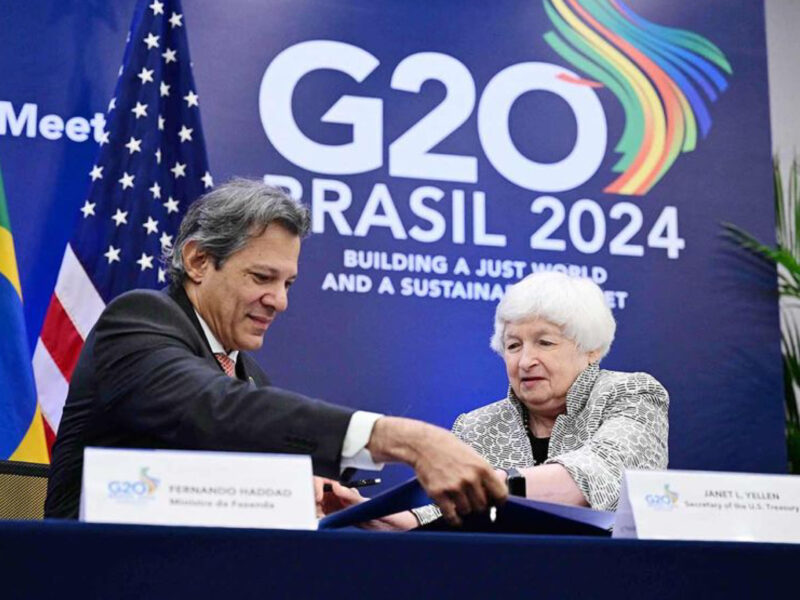Finance ministers from the world’s largest economies, meeting in Rio de Janeiro, have agreed to work together to ensure that ultra-high-net-worth individuals pay their fair share of taxes. However, the Group of 20 (G20) fell short of a more comprehensive deal on taxing the super-rich, a key priority for Brazilian President Luiz Inácio Lula da Silva.
The two-day meeting was marked by divisions between countries, with some nations rejecting the idea of a minimum tax on billionaires. The United States and Germany were among those opposing a global deal, while France, Spain, South Africa, Colombia, and the African Union backed the initiative.
Despite the lack of consensus, G20 ministers acknowledged the need to address wealth and income inequalities, which are “undermining economic growth and social cohesion and aggravating social vulnerabilities.” Brazil’s Finance Minister Fernando Haddad emphasized that it is “morally important” to have progressive taxation that benefits the poor rather than the rich.
International Monetary Fund (IMF) Chief Kristalina Georgieva welcomed the G20’s commitment to tax fairness, while French economist Gabriel Zucman hailed the “shared vision” on progressive taxation. Nobel laureate Joseph Stiglitz urged leaders to go further and coordinate minimum standards by November.
On the sidelines of the tax discussions, US Treasury Secretary Janet Yellen and Brazilian Economy Minister Haddad signed a partnership on climate protection. The G20 has expanded its focus beyond economic issues to tackle pressing challenges like climate change and geopolitical crises.
The final communique did not mention specific wars or conflicts, instead referring to “wars and the escalation of conflicts” as global economic risks. Despite the lack of a substantial deal on taxation, the G20’s agreement to work together on tax avoidance marks a step forward in addressing wealth disparities and promoting global economic stability.










Join our Channel...